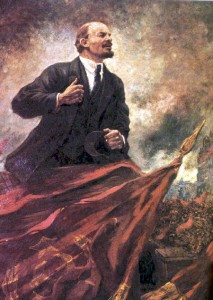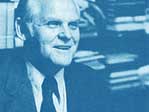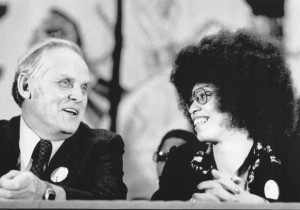
Chicago is abuzz these days as incumbent Mayor Rahm Emanuel is in an unexpected and fiercely competitive election runoff with challenger and longtime progressive Latino leader Jesus “Chuy” Garcia. What was supposed to have been a waltz into a second term for Emanuel has turned into a fight for his political life.
Garcia got a late start, is behind in the polls, has nothing close to the deep pockets or name recognition of Emanuel, and is up against the city’s political establishment and “Gold Coast,” but – and this is what makes the Windy City’s elites lose sleep at night – he is gathering momentum and support from many unions and community leaders and organizations. And it is entirely possible that he comes out on top when the ballots are counted on April 7.
Here’s why.
Cities are increasingly turning into battlegrounds, where different models – people versus neoliberal (corporate-elite friendly) – and their associated political coalitions clash. In recent years, The neoliberal model, of which Emanuel is a zealous advocate, is more and more encountering stiff and broad-based resistance. The few dissenters of yesterday are turning into the many today.
A telling example of this trend was the election of Bill de Blasio in New York’s mayoral race in the fall of 2013. De Blasio, who unhesitatingly described himself as a progressive, decried the city’s widening income inequality, gentrification, and the rise of two New Yorks – one living in grand style, the other struggling to make ends meet. He also opposed racist “stop and frisk,” policing, the shrinkage of affordable housing, the lack of pre-kindergarten programs, and the unfair system of taxation that favors Wall Street and the 1 percent.
Supporting his candidacy was a diverse coalition that grew rapidly in the course of the campaign (something that Garcia’s supporters should take inspiration and draw lessons from). So much so that it was evident in the final days of the campaign that de Blasio would win by a landslide as part of a broader progressive electoral sweep.
The outcome was an emphatic rebuff of the previous two mayors – the billionaire Michael Bloomberg and the utterly reactionary Rudy Giuliani. But our analysis can’t be left here. It was, if we dig a little deeper – and we don’t have to dig too far – a repudiation of pro-corporate neoliberalism and the rise of the neoliberal city, which were hallmarks of both Bloomberg’s and Guiliani’s governing strategy and style.
In voting overwhelmingly for de Blasio, New Yorkers said “enough” to a form of political and economic governance that favors commercial, real estate and banking interests, facilitates gentrification and the reconfiguring of urban space to suit the interests and sensibilities of the 1 percent, scales back public sector services, jobs, and union contracts, ramps up “aggressive” policing, promotes privatization of functions that previously were in the public sphere, especially public education, and deepens inequality.
As much as de Blasio’s landslide victory was a repudiation of neoliberal urban governance, it was in equal measure an affirmation by voters, even if not fully articulated, that they have a right to a livable, vibrant, just, and sustainable city (much like people have a right to a job, livable wage, health care, housing, equality, etc.).
Moreover, “right” in this instance, much like the right of workers to the products of their social labor, doesn’t rest on some abstract notion of justice, nor some general societal obligation (although society has such obligations). Instead it is grounded in material practices and activities of millions of New Yorkers who inhabit and create and recreate the city each and every day with labor and neighborly reciprocity in a multitude of paid and unpaid forms. That includes everything from raising children to transporting people, constructing skyscrapers, tunnels, bridges and roads, providing countless services, taking care of the sick and the elderly, creating art and culture, organizing sports, maintaining parks and green spaces, cleaning up environmentally hazardous sites, helping neighbors and coworkers, addressing disabilities needs, going to church, educating the young, engaging in politics, and on and on.
I wondered at the time of the New York elections if Emanuel, seeing the sea change that carried de Blasio into the mayor’s office, might consider a political reset in order to better position himself for a successful run for a second term in Chicago’s elections, which were coming into view. After all, he had to know that his closing of so many public schools was causing widespread discontent in the city as was his relentless push to turn over schools to private charter operators and contract out school janitorial services to major corporations.
Moreover, Emanuel’s refusal, despite promises, to reform the city’s notorious Tax Incremental Finance program and to stop the flow of public monies to subsidize corporations (Hyatt Hotels in Hyde Park) and big real estate interests also was leaving more and more people wondering if Emanuel was the right person to lead the city.
Most people in this situation would adjust their persona and policies to this brewing storm, but not Emanuel. As if to prove that it’s difficult to teach an arrogant, tone deaf, and well-heeled dog new tricks, he pressed fast-forward on his neoliberal plans and made no effort to tamp down his grating, me-first personality. Chicago’s elites hailed his intransigence and determination to stay the course. But many ordinary Chicagoans, when given the chance to express their displeasure in the first round of the mayoral primary in February, denied Emanuel a simple majority, thus forcing the April runoff with second-place finisher Garcia.
While it is uncertain if Emanuel will have to pay the ultimate price for being the loyal soldier for Chicago’s elites when voters go to the polls again, the contested nature of this election no matter what the outcome signifies the growing opposition to economic inequality, neoliberalism, and the neoliberal city, an emphatic assertion of the people’s right to a city, and a scaling up of the class and democratic struggle.
It has already given a shot in the arm to the broader movement and the progressive and left currents within that movement in Chicago as well as elsewhere. And it is serving notice, as did the election in New York, on the centrists in the Democratic Party as well as the right-wing-dominated Republican Party that the political dynamics that have shaped the country’s trajectory over the past 35 years are changing.
Admittedly, these changes don’t yet possess transformative power – that is, the power to deeply, boldly, and creatively consolidate a new governing model that accents people’s self-organization and needs, whether at the local, or, even more so, at the national level.
Nor are the changes in political dynamics in Chicago and New York – or Newark, N.J., Richmond, Calif., Seattle, or Los Angeles – observable in Lubbock, Texas, or Lincoln, Neb., or Cincinnati, Ohio, or, for that matter, Detroit. In other words, the process isn’t broad in scope either.
And yet, I can’t help but believe that the anger at the growing inequality and outlandish class privilege on display in a growing number of cities is also felt by tens of millions elsewhere. Maybe not to the same degree, maybe not to the same extent, but expressing nonetheless a rejection of the economic orthodoxy – neoliberalism – of the past four decades, ideologically embraced and politically facilitated by the top circles of the Democratic Party as well as every section of the Republican Party.
Of course, nothing that has happened in Chicago, New York, or anywhere else puts on the back burner in any way the overriding imperative of decisively defeating right-wing extremism. For the fact is the crisis bedeviling Chicago and other cities – not to mention the country as a whole – cannot be fully, or even significantly, resolved without politically crushing this extreme reactionary political movement that now commands the Republican Party. And it is both very mistaken and dangerous to think that islands of urban progressivism can be established in a surrounding and churning sea in which the most zealous and adventurist prosecutors of a form of neoliberalism that disdains even a passing rhetorical nod to democratic rights, social protection, or equality are increasingly riding the biggest waves.
But that discussion, as important as it is, is for another day. Right now, the challenge in Chicago, if New York’s experience is any guide, is to expand and deepen the cross-class, multi-racial, and multi-ethnic coalition that supports the insurgent campaign of Chuy Garcia.
While a strategy of reaching and mobilizing black, brown, and progressive white voters underpinned the historic 1983 election of Harold Washington, the city’s first Black and undeniably great mayor, a different strategy – and a far more likely winning strategy this time – is necessary to carry Garcia across the finish line in the first place.
A lot has happened since that historic night of Washington’s victory three decades ago. We’ve seen the election and reelection of an African American president that many thought impossible, by a multi-racial coalition of voters; the growing rejection of racism by significant sections of white people; the changing attitudes and new initiatives in the labor movement to address racism inside and outside of its ranks; the greater resonance of class in the thinking of working people, and more. And to this we should add the broad coalition of labor – the Chicago Teachers Union in the first place – communities of color and many of their leaders, reform democrats, independents, progressives, and sections of the left that are the mainstays of Garcia’s campaign.
This argues for an even more inclusive strategy than was employed to elect Harold Washington. In particular there is no good reason to write off a large section of white people without a struggle and in doing so run the risk of conceding many of them to Emanuel. That’s not a formula for success.
Yes, many white people, bombarded by the subtle and not so subtle racist message that Garcia doesn’t have the political or intellectual heft to be mayor – “not up to the challenge,” will have to be convinced that Chuy’s worst day as mayor will be better than Rahm’s best day. The way to do that isn’t by righteously exclaiming on the “backwardness” of white people, but rather by persuading them on the basis of their experience, common sense, better angels, and deeply felt and existential needs for jobs, livable wages, quality public education, and so on, that Chuy Garcia is best equipped on the basis of his vision, experience, and ordinary roots to lead the city.
And when combined with sustained efforts to acquaint voters throughout the city – North Side, West Side, South Side – with Garcia and his vision as well as mobilize those same voters to go to the polls on Election Day, Chicago will make history again in electing Jesus Garcia as it did decades ago when Harold Washington was elected. And in doing so the people of that great city will take another vital step to reclaim their city and future.
Photo: Chicago mayoral candidate Jesus “Chuy” Garcia’s at a televised debate with current Mayor Rahm Emanuel, March 26. Jesus “Chuy” Garcia for Chicago, Facebook.

















